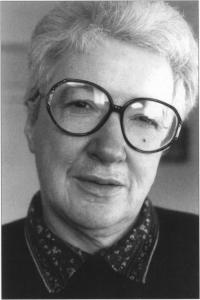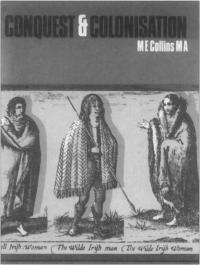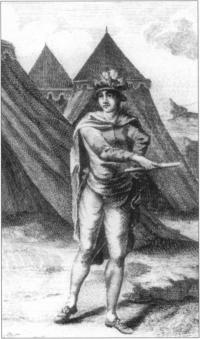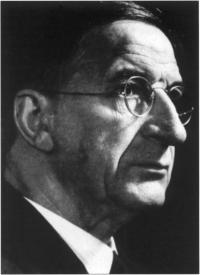‘No heroes now’?
Published in 18th–19th - Century History, 20th-century / Contemporary History, Early Modern History (1500–1700), Features, Features, Issue 1 (Spring 1997), Volume 5 GH: Did you always want to study history?
GH: Did you always want to study history?
EC: I used to read historical novels endlessly as a teenager and I went to UCD in the late ‘50s to study English and History. I switched off English within weeks, I’m afraid, whereas I found History tremendously exciting. In the History Department people like Maureen Wall, Dudley Edwards, Desmond Williams, Kevin B. Nolan and Jack Watt gave one a sense of intellectual excitement. Maureen Wall in particular was a wonderful teacher.
GH: Did you identify with her as a woman, as a role model?
EC: I don’t think we thought of it like that in those days. Certainly as a tutor I would consider her a role model, possible also unconsciously as a woman. I have always tried to teach as she taught me: to make people think, to challenge, to push students, to make them defend themselves, to make them argue, to make them tease out what it is they are doing.
GH: What did you do after college?
EC: I graduated in 1960 and taught history at second level in Cavan town and from 1965 at Strafford College, Rathgar. Prompted by Margaret MacCurtain I joined the History Teachers Association and probably spent a good deal of time grumbling to her about the quality of history textbooks. In 1968 she was approached by Bill Connolly of Gill and Macmillian to do a series for the new Intermediate Certificate syllabus and I was recruited to write Conquest and Colonisation, covering the fifteenth to eighteenth centuries (Donnchadh Ó Corráin and Mark Tierney wrote on the earlier and later periods). Largely due to the efforts of Bill Connolly, who later worked for the Educational Company, the quality of school textbooks took a quantum leap in the late 1960s. He wasn’t just interested in the commercial side, he wanted to produce good books which were attractive to look at. This also coincided with the changes taking place within the history profession. The early revisionism was beginning to reach a wider audience. Most of the school text books before this had been written in the 1920s and ‘30s and were strongly influenced by a nationalist agenda. We were trying to write school level history that would be, if not value-free, as near to being non-partisan as one could realistically get. Because of the civil rights movement—which hadn’t at that stage developed into violence—we were conscious of the Northern issue and the whole question of religion in politics. By the mid ‘70s, having produced more textbooks, I decided I needed some theoretical framework for what I was doing so I did a masters in education at Trinity College, Dublin. I also started tutoring in Maynooth under the late Tomás Ó Fiach, who was then Professor of History. In 1979 I started teaching history at the Institute of Education, Dublin and I’ve been there ever since.
GH: Are there particular problems in writing textbooks?
EC: There is always a conflict between the pedagogic aims and production values. It’s an interesting exercise trying to have the best of both but I’ve been lucky to work with people who were more willing than a lot of book producers to accept the importance of the pedagogic aims. As a writer I am trying to present issues which are hugely complex and keep the intellectual integrity of what is being done, while at the same time presenting it in a way that is understandable to minds which are still only half-developed or in some cases minds which are relatively slow to develop. Some students may have reading ages below their chronological age so you have to be terribly careful about the language used. One story I heard when I began writing has always stayed with me. It concerns the teacher who asks the question, ‘who was Anne Boleyn?’ Student: ‘Anne Boleyn was an ironing board’. Teacher: ‘Where did you get that idea?’ Student: ‘It’s in the textbook’. The student then shows the teacher the relevant sentence: ‘Henry VIII pressed his suit on Anne Boleyn’! It may be a joke but it is surprising how difficult it can be to get away from clichéd history writing and to put over complex ideas simply. It’s a very demanding skill and even after twenty-five years I’m not sure if I have it perfected yet. Structure is also very important. How do you build up a story so that the various bits hold together? Narrative has to be carefully structured so that at the end of the day it will look so easy nobody will even notice that it’s there. Concepts are another problem. Most teachers would be aware of the need, for example, to explain a concept like ‘parliament’. But there are others we don’t even think about, like ‘power’: we say so-and-so ‘took power’. For a twelve or thirteen year old what does ‘taking power’ mean? That’s one of the problems about history: so many of our words are everyday words used in special ways, different from the ways that children normally encounter them. A text-book writer has to keep all this in mind.
GH: Has writing trained you to be a better teacher or vice versa?
EC: The more I have taught the better I have become at explaining things and the more I have had to think through and how to present particular problems. When you have done that you can think about writing about them. I have taught in a Catholic school, a Jewish school and a Protestant school. If you have taught the Reformation in all three, as I have, it teaches you something about explaining and going back to the basics. How do you detach your own set of beliefs from what you are presenting?

Conquest and Colonisation(1969),Elma Collins’s first Irish history textbook
GH: With regard to textbooks are there any other changes that you have witnessed apart from their format?
EC: There’s much more use of sources and in the case of the series I did for the Junior Certificate, History in Context, an attempt to get the students to interpret them. In earlier books we used primary sources as quotations and visual material as decoration. In History in Context we incorporated questions in the text to encourage students to interpret and extract information from sources and pictures and to draw conclusions which are not apparent in the sources themselves. So they combine bits of their own knowledge with bits of information from the source. The series is called ‘History in Context’ because the emphasis is on the idea that a context-less source is pointless. In the 1970s history teaching in the English education system went wrong because they put too much stress on sources to the detriment of context. So a student might study a document but it wasn’t fitted into any broader perspective and that deprived it of meaning. What we tried to do was to combine the various components: narrative, source and question. I’m not sure we managed to solve all the problems that entailed but it was an exciting experiment.

No heros now? Romanticised image of Hugh O’Neill, from a nineteenth century engraving.
GH: You mentioned the nationalist agenda of older schoolbooks. Do recent textbooks reflect any other changes in perspectives on Irish history?
EC: They reflect the research that has been done. They have to or they would lack intellectual credibility. I did a Leaving Certificate book in the early 1970s and another covering the same period twenty years later: in the interval new areas had been very thoroughly researched: for example partition, how it happened, etc.. Back in the ‘60s there was very little in the way of archive material available. Many areas were still restricted under the thirty year rule, cabinet papers on the Treaty period, for example. Now that all that is available it is much easier to see what people were up to and to form opinions about them. In other words not necessarily revisionism, just more information and evidence, new areas explored, new explanations and theoretical frameworks developed. The land question has opened up hugely compared to what it was twenty years ago. So has Northern Ireland. Then there’s one’s own perceptions. When I started writing my position as an Irish Catholic nationalist would have been a good deal less examined than it is nowadays. Nearly thirty years of trouble in the North has been at least as important as historical research in developing one’s critical faculties.
GH: Is there more emphasis now on social history and on feminist history?
EC: Yes. The problem in the past has not been a lack of emphasis on social issues but a lack of research. That has certainly improved. Feminist history has made a big difference too because it wasn’t even thought about when I started writing. In 1969 the civil rights movement in the North was campaigning for ‘one man one vote’ in local elections. It didn’t even strike us that ‘one man one vote’ was politically incorrect. People like Mary Cullen in Maynooth have made a huge impact. In my most recent Leaving Certificate book I put in a section entitled ‘feminism’. Some friends advised against it, saying feminism was a negative word which would produce negative reactions but I stuck to my guns. In it went and I got no negative reaction from anybody. When you’re dealing with social history the role of women is important. Sometimes when people talk about the role of women in history they’re thinking in terms of something political like the campaign for the vote. I would stress also things like rural electrification which had a great effect on far more women than the campaign for the vote, important though that was.
GH: Do you have reservations about feminist history? Would you feel it is valid to study women’s history as a separate entity?
EC: If you say ‘women’s history’ then all the rest is men’s by definition therefore I have reservations about women’s history as a category. On the other hand a raised consciousness about the presence of women in history is valid. For example women played a role in the Land League, and not just the Ladies Land League. The evidence for that was always there (for example in contemporary illustrations) but now we have became conscious of it. So now you would put in an explicit reference to it whereas once you wouldn’t have. You’re not distorting the record—you’re clarifying it. That’s what I would see as the main result but there’s also a specific place for women who were active in their own right.
GH: How do you see your role as a third-level tutor?
EC: I’m a tutor in Maynooth because it keeps up my contacts with third level students. I try to do for them what was done for me. I go easy with those who need me to be gentle but with those who can take it I’m slightly ruthless. I am trying to encourage students to think. As far as history is concerned we should be teaching students to think not in clichés but in terms of alternative interpretations—seeing events from other points of view—and an awareness of the importance of cause and effect. The people we’re studying didn’t know the end of the story but the historian or student does, so our standards of interpretation of the situation will be different from theirs. I would also see this as important in my second level teaching. I wouldn’t really make a distinction. I think teaching like that can develop intellectual skills that are valuable in any field, not just in history.
GH: What are your views on the proposed new Leaving Certificate history syllabus?
EC: There’s nothing available yet to comment on but I hope the Course Committee gets away from survey courses. The present Leaving Certificate syllabus is a great chunk of time defined by a beginning and an end date. As a result teachers have to teach huge volumes of information on the off-chance that some of it will appear in the examinations. It would be much better if they could be more selective and do some study in depth. The exam doesn’t reward that kind of thing so one can’t spend much time making students think about the processes of change. Even the best teachers spoon-feed quantities of factual information into students because that’s what the exam rewards. What I would like to see is students having time to grapple with cause and effect, to understand what makes people tick, to understand the constraints applying under particular historical situations. So I hope the new course will have considerably less content. I don’t like the total emphasis on the late nineteenth and twentieth centuries. I know there is an alternative (Early Modern) course but only four per cent of students take it. A lot of teachers would like to do something else outside the late nineteenth and early twentieth century. What they want is something more flexible, maybe a number of smaller units of study from which teachers and/or students could choose two or three. The present course is there since 1969 and it has hardly changed since! What is needed is an adaptable syllabus. For example at the moment there is a huge interest in the Famine, but nobody can teach it because it isn’t on the Leaving Certificate course. You can barely teach it at Junior level. What I would like to see is a syllabus which would change every few years—so when the Famine or the 1798 Rebellion or the Act of Union or the Ulster Plantation were in the news, those teachers who wanted to study them could do so. When things are in the news, such as the Famine is at present, students respond very well—and not just in Irish history. The ‘Balkan Question’, traditionally one of the great turn-offs for students, suddenly became relevant and interesting because of the break-up of Yugoslavia. They became interested in Soviet Russia when the Berlin Wall fell. But I also hope, whatever content it chooses, the Committee keeps in mind the vital importance of the examination. It is futile producing an examination that doesn’t reward the things they want to encourage. They must design an examination to assess the criteria that they consider to be their aims and objectives.
GH: What do you think is the future of history in schools?
EC: I would certainly hope that in this country of all countries we keep history in our schools because otherwise it will devolve to the street. If there is no corrective to the ballads people hear in the pub, for example, through study of history with some intellectual rigour and some kind of valid assessment of the reality of the myths then people will be convinced by the myths and that’s a terrible danger. When I was in school well over ninety per cent of students did history for the Leaving Certificate. Nowadays it’s about twenty-five per cent. It’s there at Junior Certificate because it’s compulsory for secondary schools. But if the Minister for Education has her way and drops it, it could disappear quite easily. There’s prejudice against it in certain sectors because of the feeling that it’s of no practical use in business. I think if you have the intellectual training history gives you can run anything.

‘The de Valera of the Second World War is more admirable then the de Valera of the Civil War.’
GH: Is there any particular person in history whom you have found inspiring?
EC: One of the problems of being a historian is not having heroes. I remember when I first started teaching in Cavan, I was doing the Nine Years War, and I was trying to explain that Hugh O’Neill was not the shining hero that they all thought he was because there were sordid political reasons why he might look for Spanish help and one girl got terribly upset and said, ‘but Miss, are there no heroes now?’ That’s the essence of history but some people find that very hard to accept. I can think of a few people I admire: Michael Collins for a start, not for his military prowess but because he had the gumption to change his mind and to adapt to changing circumstances. I admire that more than I admire people who stand consistently by a cause, whatever that cause is. People change; situations change. You can admire one aspect of a person’s career without necessarily admiring all of it. The de Valera of the Second World War is more admirable than the de Valera of the Civil War. I admire O’Connell more than most. There was no political advantage to the stand he took against slavery yet he was prepared to do it. And in the letters to his wife he comes across as a very attractive person. I dislike fanaticism or intolerance yet to achieve things sometimes you need to be driven. The people who were put up to us as saints and models very often turn out to have been quite unpleasant when you look closely at them but because of their intolerance, their passion, their narrowness, their vision, they do achieve in their own terms.
Gráinne Henry teaches history at Presentation Convent, Listowel, County Kerry.
















